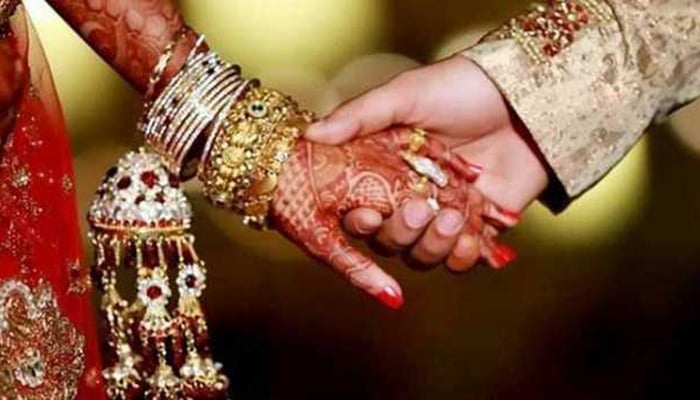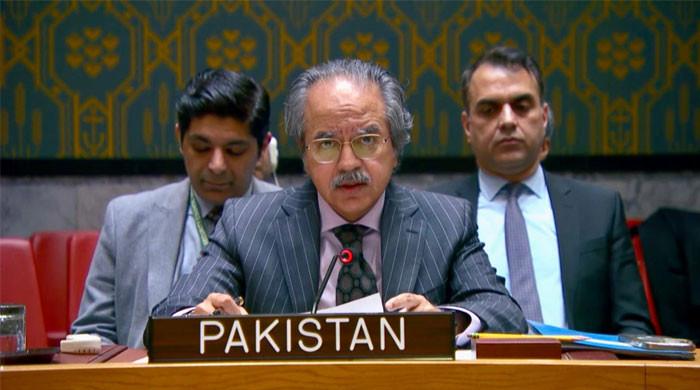Disposable brides
Far too often, brides from Pakistan are treated as a commodity to be traded in foreign lands
June 17, 2020

Here is what the Holy Quran says about marriage, in Surah 30: “And of His signs is that He created for you from yourselves mates that you may find tranquility in them; and He placed between you affection and mercy.”
Note the following words: tranquility, affection, and mercy. Unfortunately, these often fall on deaf ears. Far too often, brides from Pakistan are treated as a commodity to be traded in foreign lands.
An item which appeared in British daily The Times on June 22, 2019, detailed the phenomenon of Pakistani brides who were sent to the United Kingdom to give birth, and once they had fulfilled that function, they were shipped back home.
As the Times stated: “The brides come to the UK in arranged marriages and raise children before their husbands or in-laws tire of them or decide they are no longer of use. The men often trick the women into returning to Pakistan for a holiday or to see a sick relative. They are then abruptly divorced and discarded like “used commodities” thousands of miles from their children, who grow up being told their mother is dead, mentally ill or chose to desert them.”
As cruel and contrary to the spirit of the Quran this is, it often compares favourably to the women who remain in marriages.
Domestic violence is endemic. According to a 2016 article written by Punita Chowbey, an academic at the Sheffield Hallam University in England, some 39% of “ever-married” women in Pakistan between the ages of 15 and 49 years reported being victims of domestic and emotional violence.
Chowbey’s research included interviews of Pakistani women in Pakistan and Britain. She found that six out of 27 British interviewees admitted that they were victims of domestic violence. While, in Pakistan, 12 out of 16 interviewees admitted the same.
Physical violence included life-threatening acts such as “strangulation, knife attacks and hitting on heads with heavy objects.” Other abuses were also prevalent, such as economic violence, therefore not being able to use resources they had earned, or emotional and psychological violence.
Statistics and research can only provide an outline of what it is like to be a “disposable bride”. In fact, individual stories provide more excruciating details.
Take the case of Sufiya Ahmed from Karachi, Pakistan. She is a client of mine, and presently living with me. What follows is Sufiya’s version of events.
Sufiya was married to a Pakistani living in Southall, London. Her family bore all the wedding expenses. They also put up her husband’s family at their home and other rental accommodations during the period they arrived to have their son married in Karachi.
It was only after their daughter was born in 2017 that her husband started the process of bringing Sufiya and their daughter to the UK. Sufiya claims that her family again bore all the expenses.
Far from being in a privileged position, when they arrived, the mother and daughter were apparently forced to live in a three-bedroom house with four other families. In total, Sufiya claims, there were 11 people living there. There was not nearly enough space.
“My 15-month-old daughter was not allowed to play or talk to other children in the compound. Furthermore, my in-laws took all the money and jewelry that my parents gave me. These were never returned,” says Sufiya, who is in the United Kingdom again to seek justice for her and her 2.8-years-old daughter.
Sufiya claims that more abuse followed: she was never given money to spend on herself, including essentials like clothing. Furthermore, she says she was not allowed to go outside without her husband’s permission.
She has stated she was frequently intimidated by her husband. He allegedly constantly threatened that he would send her back to Pakistan alone. She has alleged that she was abused not only by her husband but also by her mother-in-law and her brother-in-law.
Worse followed: her father died in a traffic accident and she says she was not allowed to go back for the funeral. When her mother got very ill, again, she says, she was not permitted to visit.
Eventually, Sufiya became depressed and began contemplating suicide. Finally, her brother sent her tickets in February to help her come home. Since then, Sufiya has only returned to the UK now to seek legal assistance. During all of this, she continues to face threats from her husband.
Chowbey believes that there is a link between employment and domestic violence. Her research stated that men who were in less well-paid jobs or unemployed were more likely to be violent towards their wives.
“What happened to Sufiya is too common,” a women rights activist told me, “There needs to be a change both in the law and in the society.”
For Sufiya and her daughter, change can’t come soon enough.
- Malik is a solicitor in England. She tweets at @shahjhan_malikk











